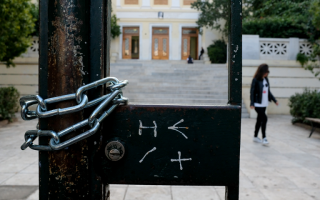Will Kerameus’ education reform make the cut?

Just three in a succession of education ministers since the restoration of democracy managed to carry out reforms that touched the essence of the contradictions prevailing in Greek society. All three also happen to be women. The first two – Marietta Giannakou and Anna Diamantopoulou – were rewarded for their efforts by being voted out of Parliament when the next election rolled around.
Despite the fate of her predecessors, incumbent Niki Kerameus has also taken the plunge with a reform package that strikes at the heart of two cultures that divide us: that of progress and healthy competition in the framework of the European Union, and that of conservatism, insularity and hostility toward excellence.
Clientelism is a phenomenon that has been rife since the establishment of the modern Greek state. Cronyist appointments to the civil service and state-run companies gave birth to monsters that we are now trying to hold at bay – lest they gobble us up – with cushy voluntary redundancy programs that are being paid for by taxpayers. The situation is even worse in the education sector.
An imperfect system introduced after World War II that gave all the power to professors became even more rotten during the 1967-74 military dictatorship. Then, in 1982, along came the “charismatic” Socialist prime minister Andreas Papandreou, granting junior academics tenure – even those who were unqualified – and entrenching political parties deep in the university system.
In August 2011, leftist SYRIZA leader Alexis Tsipras ranted in Parliament about university departments operating in most parts of the country with no other purpose than to pander to clientelist relationships. He called them “schools of nothing.” Today, Kerameus is trying to shut down these schools of nothing, only to be accused by the opposition leader of pandering to the private education sector.
However, the greatest threat to Kerameus’ reform program is not Tsipras’ change of heart nor the chest-thumping tactics of a few fringe groups. The changes she seeks to make are an affront to much more deeply established vested interests and mentalities. And those interests will not go down without a fight just because the reforms were passed into law, just as they did not give up in the face of the Diamantopoulou reform.
When the schools of nothing start closing down, who’s to say that lawmakers with the ruling conservative New Democracy party who are elected in these regions – who rely on the support of businesses that rely on the business from students – will not react as well?
These lawmakers will find allies in the rectors facing the threat that they will lose their iron grip on all the power, and in the conservative part of SYRIZA that will be deprived of a traditional pool of support – which turns out to be the most reactionary part of society.
The Giannakou and Diamantopoulou laws were eventually defeated by conservatism. Will the Kerameus law make it?





